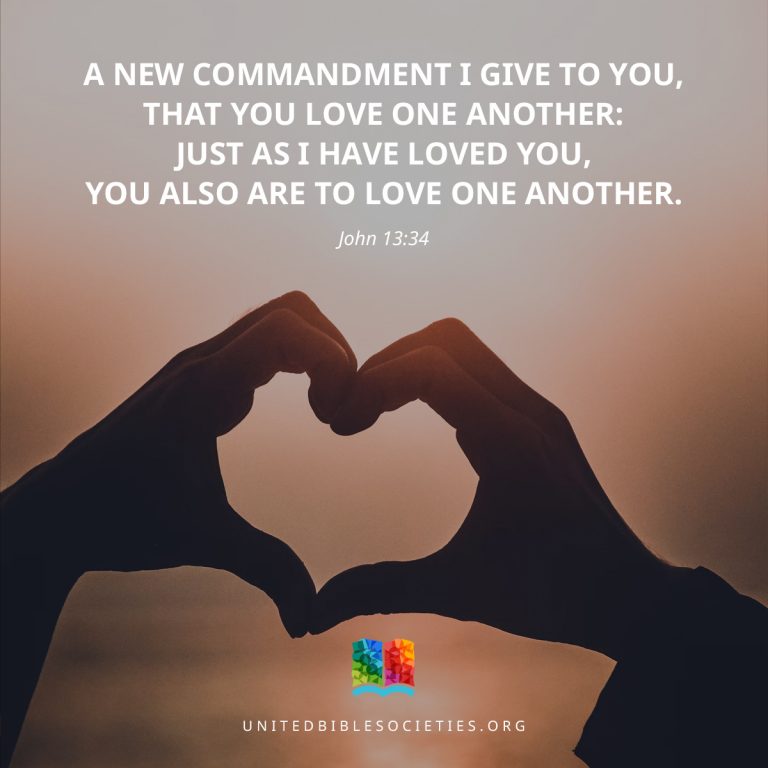1 What good is it to be a Jew? What good is it to be circumcised? 2 It is good in a lot of ways! First of all, God's messages were spoken to the Jews. 3 It is true that some of them did not believe the message. But does this mean that God cannot be trusted, just because they did not have faith? 4 No, indeed! God tells the truth, even if everyone else is a liar. The Scriptures say about God,
“Your words
will be proven true,
and in court
you will win your case.”
5 If our evil deeds show how right God is, then what can we say? Is it wrong for God to become angry and punish us? What a foolish thing to ask. 6 But the answer is, “No.” Otherwise, how could God judge the world? 7 Since your lies bring great honor to God by showing how truthful he is, you may ask why God still says you are a sinner. 8 You might as well say, “Let's do something evil, so that something good will come of it!” Some people even claim that we are saying this. But God is fair and will judge them as well.
No One Is Good
9 What does all this mean? Does it mean that we Jews are better off than the Gentiles? No, it doesn't! Jews, as well as Gentiles, are ruled by sin, just as I have said. 10 The Scriptures tell us,
“No one is acceptable to God!
11 Not one of them understands
or even searches for God.
12 They have all turned away
and are worthless.
There isn't one person
who does right.
13 Their words are like
an open pit,
and their tongues are good
only for telling lies.
Each word is as deadly
as the fangs of a snake,
14 and they say nothing
but bitter curses.
15 These people quickly
become violent.
16 Wherever they go,
they leave ruin
and destruction.
17 They don't know how
to live in peace.
18 They don't even fear God.”
19 We know that everything in the Law was written for those who are under its power. The Law says these things to stop anyone from making excuses and to let God show that the whole world is guilty. 20 God doesn't accept people simply because they obey the Law. No, indeed! All the Law does is to point out our sin.
God's Way of Accepting People
21 Now we see how God does make us acceptable to him. The Law and the Prophets tell how we become acceptable, and it isn't by obeying the Law of Moses. 22 God treats everyone alike. He accepts people only because they have faith in Jesus Christ. 23 All of us have sinned and fallen short of God's glory. 24 But God treats us much better than we deserve, and because of Christ Jesus, he freely accepts us and sets us free from our sins. 25-26 God sent Christ to be our sacrifice. Christ offered his life's blood, so by faith in him we could come to God. And God did this to show that in the past he was right to be patient and forgive sinners. This also shows that God is right when he accepts people who have faith in Jesus.
27 What is left for us to brag about? Not a thing! Is it because we obeyed some law? No! It is because of faith. 28 We see that people are acceptable to God because they have faith, and not because they obey the Law. 29 Does God belong only to the Jews? Isn't he also the God of the Gentiles? Yes, he is! 30 There is only one God, and he accepts Gentiles as well as Jews, simply because of their faith. 31 Do we destroy the Law by our faith? Not at all! We make it even more powerful.
aza 3
buuluz muŋw aŋni ṯupupaḏa lu
1 aḏa kwiri kwuṯemḏizi gi yahuuḏ? ya fayḏa kwiri ṯaŋ kweḏi ṯuɽuna luḏrunya? 2 ŋeni ŋupa rac. ŋeni ŋiŋna ŋir ŋu, Allah wiica yahuuḏa-na eḏaŋraci ŋiɽaŋali tatap ŋuŋun. 3 ta a kwer ari ḏa mindaŋ ma gwu lɔkwɔ leḏi yahuuḏ ere eḏi ṯəmna mac? kaka iti urir gwu lirlalu mac, ta er irici Allah ṯirlalu ṯuŋwun tɔk a? 4 beri ma! er inḏa Allah wirlalu ma lizigwunaŋ ndendeṯ keni orɔ ləluŋ, kaka luḏinar gwu, ŋaruŋw:
er inḏa ŋaŋwu kwirlalu ki ŋiɽaŋal-na ŋɔŋa tatap,
mindaŋ ma ru lu ṯar.
5 lakin ma ŋudur ŋeri baŋaci ṯofḏana ṯeḏi Allah, a kwer ari ḏa? er ari: Allah wende wofḏana muŋw ketice nyuŋwuzi ŋirŋaza? (nyi ŋgwu kwandiza kaka lizigwunaŋ domony.) 6 beri ma! eŋgir ma orɔ ŋwu ta, eŋgi ma Allah hakwumi ṯurmuna aŋgwuru? 7 ma ŋidiny ŋinyi piŋi ŋirlalu ŋeḏi Allah ŋiniṯ ŋi, na lɔḏɔ leṯi nyi ruzi kinna kaṯi? 8 na lɔkwɔ, ner nyji andizaza nana tuŋwun ṯi ṯir ŋəluŋ, ner aruŋw nyiŋa laruŋwa: ŋofḏana eḏizerri ŋiki mindaŋ mer ruḏa ŋizaw. ŋofḏana eḏi ruzi lizi leṯizerri ŋu kaṯi hukm yi.
lizigwunaŋ leni liki ndendeṯ
9 aḏa kwiri marna? a kwirir yahuuḏ, er kilaḏa hukma eḏi liḏaḏu la? beri ma! nyi kwuruzi kerreny lizi ndendeṯ luway leḏi ŋikya, lir yahuuḏ na yunaani tɔk. 10 kaka luḏinar gwu, ŋaruŋw:
kwiti kwere mac kwofḏana. aw, kwiti kwere mac;
11 nuŋw ere kwere mac kweṯizelŋece, nuŋw ere kwere tɔk mac kweṯi naŋnini Allah.
12 limɔ ṯirenye lu tatap, ner aki ṯay pir duŋw li;
nuŋw ere kwere mac kweṯizerri ŋizaw. aw, kwiti kwere mac.
13 rugwuɽum reŋen riri kaka ṯimamu ṯifuru,
na eṯir zi kekɽinjelu riŋla ri reŋen.
ŋia ŋeḏi kimerken ŋeṯinani ki runyu-na reŋen.
14 eṯi kworɔ kweŋen urenina yufulu yi yiɽi cecer.
15 na eṯi ŋwara ŋweŋen apiralu ŋwinyaŋ eḏi zi endinye ḏor;
16 mer ele ki ṯay la ṯere nyiḏak, eṯir gwu ṯazi ṯikiraḏa lu ṯuronyina ṯi,
17 ner ere elŋece ṯay ṯeḏi ŋiɽena mac.
18 ner ere eḏizi Allah ŋiḏenya-na ki yey-na yeŋen tɔk mac.
19 a kwilŋiicar ma rac, ŋiɽaŋal tatap ŋandizazi kuruu ŋiri ŋeḏi kla leṯinani kuruu gi-na, mindaŋ ma kworɔ tatap nani dec, na ṯurmun tatap nanji hukma lu weḏi Allah. 20 kwiti kwere mac kweḏi ŋuma eḏeni kwuzuɽu-na ki yey-na yeḏi Allah mer zi aku ŋeḏi kuruu, kaka eṯi zi kuruu ilŋiiḏini ŋeḏi ŋikya.
ṯofḏana ṯəmna ṯi ṯeṯinani eḏi Kwruztu-na
21 lakin na ṯofḏana ṯimɔ ruwene lu, kḏa ṯinḏi nani gwu Allah ṯiira kuruu-na. na kuruu-ŋa liɽi li eṯir ṯi keni unḏi ki; 22 kḏa ṯir ṯofḏana tinḏi nani gwu Allah ṯəmna ṯi ṯeṯinani eḏi Yecu Kwruztu-na, ṯeḏi lizi tatap leḏi ṯəmna kḏu. 23 kaka enir gwu libiɽḏina; ner zi ṯa aki tatap pir, ner bilaṯi ŋiniṯi nana ŋeḏi Allah, 24 nuŋw zi ruzi luzuɽu-na beyin ṯimeca ṯi ṯeḏi ŋimɽi ŋuŋun, ṯalliḏiza ṯi ṯeṯi nani eḏi Kwruztu-na kweni Yecu. 25 na Allah ruwezi ŋunduŋwu lu pɔrpɔr eḏorɔ ŋgwa kwuməmiḏi lizi-na Allah yi, ŋin ŋi ŋuŋun, eḏorɔ ŋeḏi lizi ṯəmna ṯi. nezi ŋi Allah ruweci ṯofḏana lu ṯuŋwun, miḏicaŋw zi gwu ṯugwori lalu tuk ŋiɽaŋal ŋi ŋeḏi ŋikya ŋeḏi kerrenyŋw; 26 nuŋw zi ruweci kirem rɔgwɽɔ lu ruŋwun ruzuɽu-na, na eṯuŋw ŋi ruzi kwuzuɽu-na ŋgwa kweṯalliḏa Yecuŋw ṯugwori nana ṯəmna ṯi.
27 ṯaŋwu, a kwer ari ḏa ŋeḏi ṯellina ṯeri ki rɔgwɽɔ? ṯiira ezir-na. ŋiɽaŋal ŋi ŋiri ṯaŋ? ŋiri ŋeḏi ŋɔḏɽor ŋeri i? beri. ŋiri ŋeḏi ṯəmna. 28 kaka ilŋiicar gwu rac eṯi kwizi eni kwuzuɽu-na ṯəmna ṯi, muŋw zi ere aki ŋɔḏɽor ŋere mac ŋeḏi kuruu. 29 a laruŋwa, Allah wiri Allah weḏi lizi lir yahuuḏ ṯuɽuk a? witi wiri Allah weḏi kla lir umam tɔk manya? aw, wiri Allah weḏi umam tɔk, 30 urŋw gwu ṯa Allah wutuput; na winḏi eḏi zi ruzi lizuɽu-na tɔk kla leḏi ṯuɽuna ṯeḏi ŋwuḏruny ŋiɽaŋal ŋi ŋeḏi ṯəmna ṯeŋen, na kla liti leḏi ṯuɽuna mac lakin mer eḏi ṯəmna. 31 ta er ma urṯinelu kuruu gi, ŋiɽaŋal ŋi ŋeḏi ṯəmna kḏu a? beri ma! a kweṯir miḏeḏa kuruu teter.



